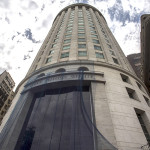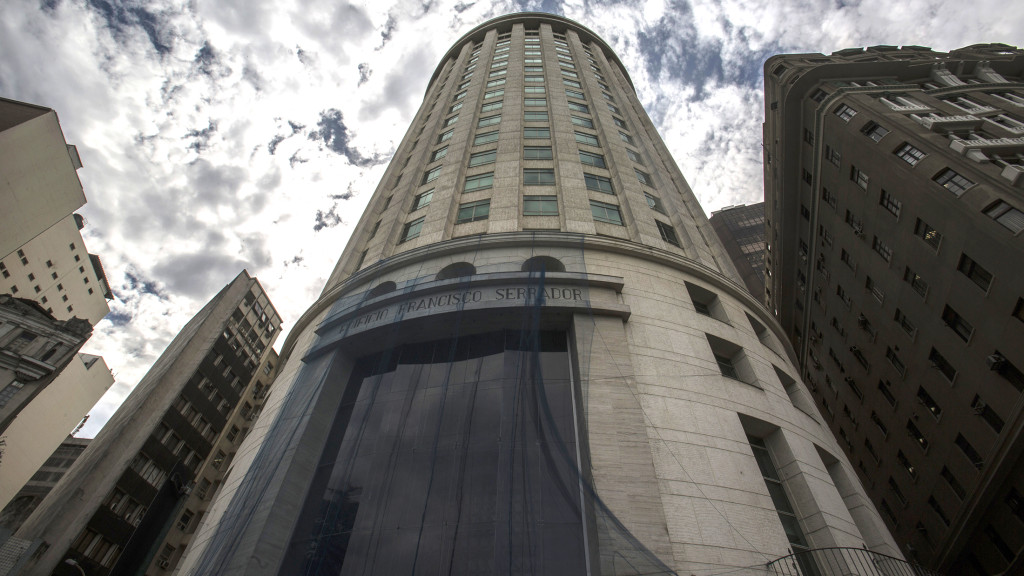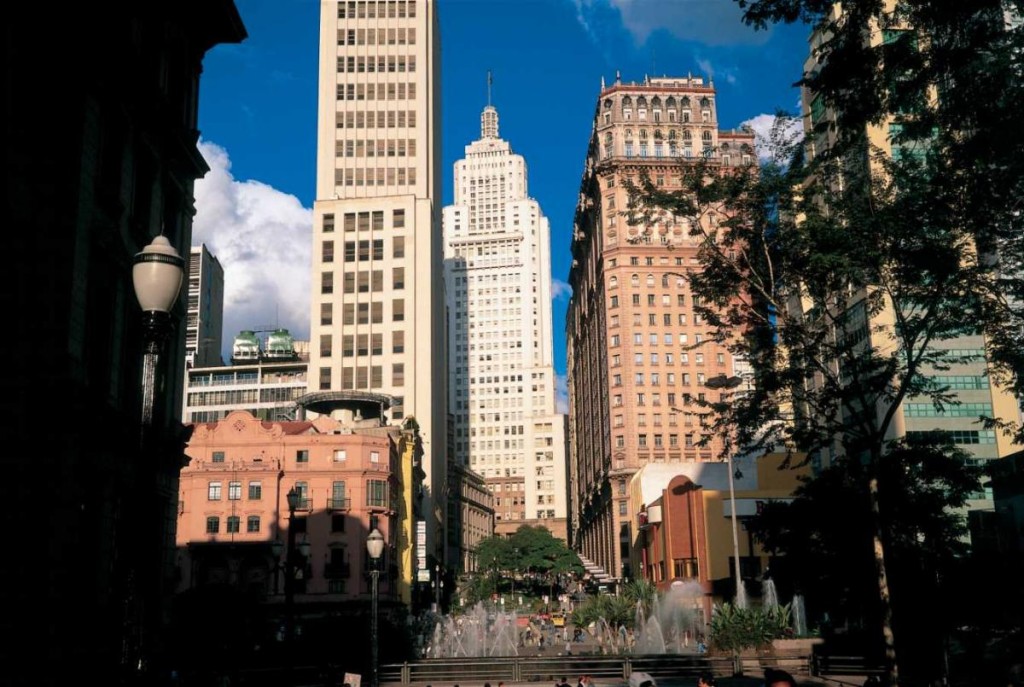

The 23-story Serrador building in Rio de Janeiro

At opposite ends of downtown Rio de Janeiro, projects tied to Donald Trump and Eike Batista— one a billionaire-turned-politician, the other Brazil’s most famous ex-billionaire — have come to represent the city’s real estate bust.
The 23-story Serrador building, a granite-and-glass art deco tower near Rio’s Santos Dumont airport, has sat empty since Batista’s failed empire of commodities companies abandoned it last year. Four miles away, in the city’s gritty port district, an ambitious office project that Trump lent his name to is still nothing more than a weed-filled lot about a year after construction was slated to begin.
While real estate markets are faltering across this recession-plagued country, nowhere is the toll from a sweeping national corruption scandal and commodities collapse more apparent than in Rio. To make matters worse, a flood of new office units that were planned during the boom years of the past decade are now hitting the market, pushing Rio’s high-end vacancies to the most in Latin America. Rents that were once on par with New York and Paris are tumbling.



“Rio is going through a very delicate moment,” said Ricardo Raoul, a managing director at Paladin Realty Partners LLC, a property fund with about 12 billion reais ($3.2 billion) in projects in Brazil. “There’s an increase of inventories together with a lack of demand.”
In Leblon, a seaside neighborhood with views of the Christ the Redeemer statue that houses many of the city’s hedge fund managers, office rents have plunged by a third since early 2014. Even more if you price the leases in dollars — about 60 percent. In Barra da Tijuca, an up-and-coming neighborhood on the city’s outskirts, phone company Tim Participacoes SA was able to negotiate two years of free rent for its new headquarters in a glass tower with palm trees out front, according to a regulatory filing.
Residential property prices in Brazil’s top 20 cities fell in August from July, the first drop since at least 2008, with Rio leading the declines, according to real estate index FipeZap. Prices of Brazilian properties rose 3.3 percent in the past 12 months, about 6 percentage points below inflation, resulting in a decline in real terms.
Rio monthly office rents fell to 135 reais per square meter — or about $3.32 per square foot — in the second quarter, said CBRE Group Inc., the world’s biggest commercial real estate services company. That’s about half the price of New York and Paris and is down from a peak of 150 reais in early 2013, or almost $7 per square foot based on the exchange rate at the time. Meanwhile, vacancies have jumped to 23 percent from less than 3 percent at the end of 2010.
Like so many of the city’s problems, this one too can be traced to the double blow of the scandal at state-run oil giant Petroleo Brasileiro SA and the slump in crude prices. Petrobras halted new business deals with about 30 suppliers after an investigation found evidence of kickbacks to win contracts, forcing at least seven companies with large operations in the city to file for bankruptcy protection. Standard & Poor’s stripped the country of its investment-grade credit rating Wednesday, citing in part the political fallout from the corruption scandal. The real fell 1.8 percent to 3.8494 per dollar at 2:12 p.m. on Thursday.



Other oil companies are scaling back in Rio after prices more than halved in the past 12 months. Statoil ASA, the Norwegian oil company, gave back one of the seven floors it was occupying in the Manchete building. Trondheim, Norway-based Sintef, a research foundation for the energy industry, is leaving Rio altogether.
“A good portion of the market was based on the oil industry,” said Raul Correa, a partner at commercial agent Office International Realty who has been following the price drop in swanky districts like Leblon. “Now a lot of them are retreating.”
At the site of the future Trump Towers Rio, a 5 billion-real project announced in 2012, several run-down warehouses jut out from the overgrown brush. There are no signs of development anywhere. Stefan Ivanov, chief executive officer of the project that bought the rights to use Trump’s name, said it’s still in the planning phase.
“There are various real-estate projects under elaboration in Rio de Janeiro that are taking more time than originally anticipated to bring to construction,” he said in an e-mailed response to questions. He declined to comment on the timing of the project or if the budget is being adjusted.
In the nearby Porto Maravilha district, a flood of new projects that’s part of an effort to revive the area ahead of the 2016 Olympic Games will only add to the oversupply, Paladin’s Raoul said.
A recovery in the market will take time, he cautions. A very long time — as in wait until 2019.
“The outlook,” he says, “is very negative.”
By Juan Pablo Spinetto


![]()
![]()
























